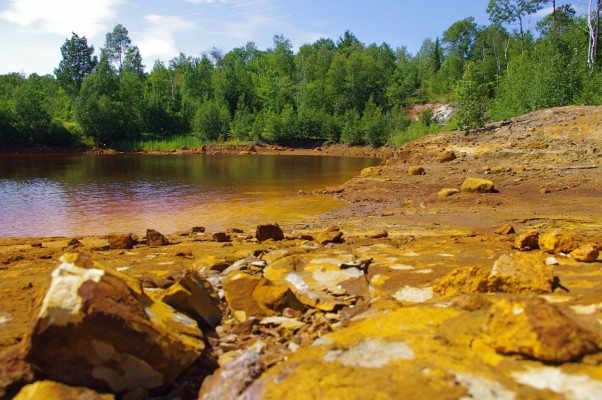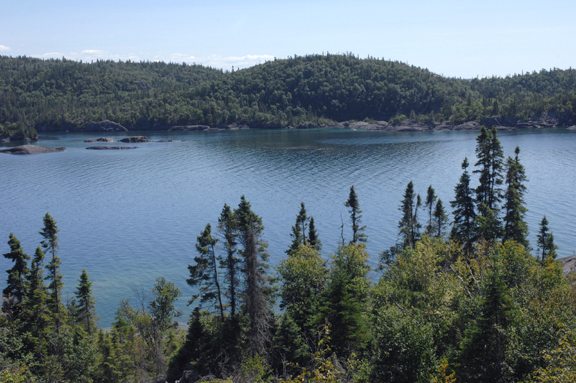Ontario Nature Blog
Receive email alerts about breaking conservation
and environmental news.
© Lora Denis
© Simon Brothers Powerline Films
I woke up this morning to a story on the local news that a family of nine had died in another northern First Nation reserve house fire. Among the dead were three children. The underlying cause – poverty and what the reporter called “third world living conditions”. It’s enough to take your breath away.
The economic gap between Indigenous and “settler” people (those of us whose ancestors arrived from other continents) is stark evidence that, as one of the wealthiest and well-educated countries in the world, the level of inequality in Canada is indefensible. The issues are complex; the result of short-sighted, and often unethical, decisions over several hundred years.
For environmentally-conscious people, we sometimes find ourselves caught like deer in the headlights. When we are already using more resources than our planet can sustain, is raising the standard of living for people in poverty – more than 3 billion people worldwide – possible? We find ourselves mentally and emotionally spread thin, wondering – what are our responsibilities? What if those responsibilities are in conflict?
Yet, many of the root causes of environmental degradation are closely linked with poverty and the loss of Indigenous cultures. Diversity is our strength. Both cultural diversity and biodiversity are essential for a sustainable future for our children and generations beyond. We need to shift our thinking to a shared vision of equality and prosperity.

We can do better. We must.
With the federal government’s promise to implement the recommendations put forth by the Truth and Reconciliation Commission of Canada (TRC), many feel that a tipping point has finally been reached in Canada. While focusing on the impacts of Canada’s residential school system, the report’s recommendations are far-reaching; the paternalistic and racist foundations of the residential school system have been (and in many cases continue to be) ubiquitous in decision making across Canada.
One of the recommendations in the TRC report is to “commit to meaningful consultation, building respectful relationships, and obtaining the free, prior, and informed consent (FPIC) of Indigenous peoples before proceeding with economic development projects.” We know Indigenous peoples around the world have often borne the brunt of industrial resource extraction that has polluted waters, destroyed wildlife habitat and displaced people from ancestral lands. But as conservationists, we must also recognize that many communities have also suffered from flawed conservation initiatives. Decisions, in the name of conservation, have also extinguished hereditary rights and perpetuated a system where Indigenous people do not have a say in their own futures.
At the heart of the matter is who has the right to make decisions that impact the shared lands and resources that we all depend on.

Ontario Nature is supporting FPIC in a number of ways, including advocating for Forest Stewardship Council (FSC) certification. There are over 52 million hectares of FSC certified forests in Canada. More than 80% of Indigenous communities in Canada are located in or near forests that they depend on for cultural and economic livelihoods. A commitment to FPIC is one of the many distinguishing features of the FSC system – it’s the only system that has formally established the right to consent. FSC’s leadership in recognizing FPIC began two decades ago; however, determining how FPIC should be achieved, and who can verify that the right to FPIC has been respected, is still emerging. Indigenous communities across Canada have been actively involved in guiding new policies and field-testing implementation. With a new FSC National Standard on the horizon, it is poised to become the strongest forest certification system in Canada for protecting Indigenous rights.
Ontario Nature members – more than 30,000 voices strong – have caring hearts and sharp minds. We must speak out against injustice, support FPIC and Indigenous rights, and make sure our efforts to protect the places we love respect the original stewards of this land. Our shared future depends on it.

Gananoque Lake Nature Reserve © Smera Sukumar
Thank you for what you do, for the essential relevant knowledge Ontario Nature skillfully shares. I am working on understanding what “meaningful consultation” is. This article shedd some light on this key topic.
Very well written blog that has been thought provoking
Agreed, the duty to obtain free, prior and informed consent should apply with respect to biodiversity offsetting policy and projects. The right to free, prior and informed consent is one of the key principles of international and domestic human rights law to protect Indigenous peoples from destruction of their lives, cultures and livelihoods.
Natives in Niagara have told me it is a disgraceful that the province is not consulting them in their wetland policy review. They view the whole approach in their review paper of “bio-diversity offsetting”, as profoundly offensive to their cultural appreciation of the sacredness of life.